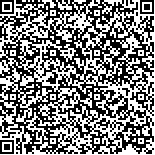|

二维码(扫一下试试看!) |
| 木质素调控制备果糖基碳微球及其电化学性能研究 |
| Fabrication of Fructose-based Carbon Microspheres Controlled by Lignosulfonate and Their Electrochemical Properties |
| 投稿时间:2020-01-07 |
| DOI:10.11980/j.issn.0254-508X.2020.04.003 |
| 关键词: 木质素磺酸盐 碳材料 果糖 自组装 电化学性能 |
| Key Words:lignosulfonate carbon materials fructose self-assembly electrochemical properties |
| 基金项目:国家重点研发计划(2017YFB0308202、2017YFE0101500)。 |
|
| 摘要点击次数: 5319 |
| 全文下载次数: 4001 |
| 摘要:本研究使用果糖作为碳源,木质素磺酸盐协同三嵌段共聚物P123作为模板剂,经过水热碳化法和高温碳化法制备果糖基碳微球材料。探究了木质素磺酸盐对果糖在水热条件下的组装过程及调控机制,并分析果糖基碳微球材料在电化学领域的应用。结果表明,木质素磺酸盐的加入是微球表面形成波纹状突起的决定因素。经高温碳化处理过后得到中空多孔的Yolk-Shell果糖基碳微球材料具有良好的电化学性能,其比表面积为535.04 m2/g,孔容为0.26 cm³/g;在电流密度为0.1 A/g时,其比电容为96 F/g,能量密度为3.16 Wh/kg,功率密度为28.06 W/kg。 |
| Abstract:In this thesis, fructose-based carbon microspheres were prepared by hydrothermal carbonation and high temperature carbonation using fructose as carbon source, lignosulfonate and P123 as the synergistic templates, the assembly process and regulation mechanism of fructose under hydrothermal conditions were also studied. The results showed that the addition of lignosulfonate was a decisive factor for the formation of ripple protuberances on the surface of microspheres. The hollow and porous Yolk-Shell fructose-based carbon microspheres after high temperature carbonization possessed superior specific surface area of 535.04 m2/g and a pore volume of 0.26 cm3/g. In addition, they also exhibited good electrochemical properties, the specific capacitance was 96 F/g, energy density was 3.16 Wh/kg and power density was 28.06 W/kg when the current density was 0.1 A/g. |
| 查看全文 查看/发表评论 下载PDF阅读器 |